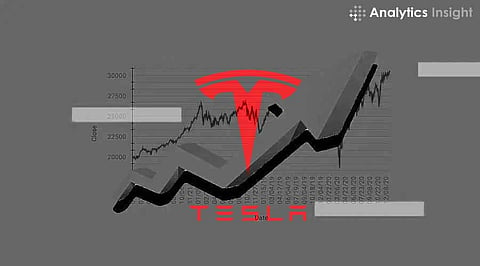

Tesla Stock Price Analysis - As of February 28, 2025, Tesla Inc. (TSLA) shares are trading at $281.95, reflecting a significant downturn from previous highs. This decline has been influenced by various factors, including sales performance, CEO Elon Musk's political engagements, and increased market competition.
In February 2025, Tesla stock experienced a substantial decline of approximately 30%, marking it as one of the company's most challenging months since December 2022, when shares fell by 37%. This downturn has resulted in Tesla's market capitalization dropping below the $1 trillion threshold for the first time since November 2024. The stock's closing price on February 26, 2025, was $302.80, an 8.4% decrease from the previous day.
In January 2025, Tesla reported a 45% decrease in European sales, with 9,945 vehicles sold compared to 18,090 in the same period the previous year. This decline is notable, especially as the overall European electric vehicle market grew by 37.3% during the same timeframe. Tesla's market share in Europe consequently fell from 1.8% to 1%.
CEO Elon Musk's political activities, particularly his association with President Donald Trump and his role in the Department of Government Efficiency (DOGE), have raised concerns among investors and consumers. A survey indicated that 49% of Americans hold negative views of Musk, and 32% of U.S. consumers would not consider purchasing a Tesla vehicle, an increase from 27% the previous year. This political involvement is perceived to be affecting Tesla's brand image and sales.
Tesla faces intensified competition from other automakers, notably Chinese manufacturers like BYD Inc., which have introduced advanced driver-assistance systems and competitive pricing. BYD's emergence as a strong competitor in the electric vehicle market has contributed to Tesla's declining market share and sales figures.
Financial analysts have expressed concerns regarding Tesla's current trajectory. Randi Weingarten, president of the American Federation of Teachers, has urged major asset managers to reassess Tesla's valuation, highlighting the potential impact on pension portfolios due to the stock's decline.
Despite these challenges, some analysts remain optimistic about Tesla's future, citing potential regulatory support for autonomous driving and upcoming vehicle launches as possible catalysts for recovery.
From a technical standpoint, Tesla's stock is approaching critical support levels. The shares are nearing the 200-day moving average, a key indicator for long-term trends. A breach below this level could signal further declines, while a rebound may suggest potential stabilization.
Tesla's recent stock performance reflects a confluence of declining sales, leadership controversies, and heightened competition. As the company navigates these challenges, its ability to adapt to market dynamics and address consumer concerns will be pivotal in determining its future trajectory.
